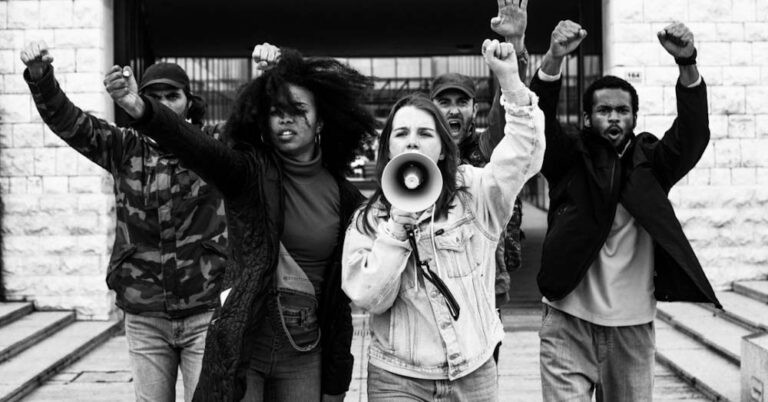
The first time I heard that Sunday is officially the unhappiest day of the week, I was surprised. After all, isn’t Monday considered the unhappiest day of the week? However, after reading the arguments for why Sunday is actually unhappier than Monday and discussing this with different people, I have to say, it makes sense.
After all, Sunday is typically the last day of the weekend, and Monday is the first day of work, while people are often more restless on Sunday and more accepting of their circumstances on Monday.
Moreover, people tend to suffer more from anticipating bad experiences or events than when actually experiencing them. Similarly, people often anticipate more pleasure than they actually experience during a positive moment.
As such, on average, the greatest anticipation of pain occurs on Sundays as people realize that the next day is Monday, the weekend is almost over, and they need to go study or work. Similarly, Fridays are usually preferred over Saturdays because people know they are off in the second half of the day and have the weekend to look forward to.
Additionally, Sundays are often perceived as the unhappiest day of the week because people feel like it’s their last chance to tend to personal matters that have accumulated over the last week (months and years) before the workweek begins.
It’s also seen as the final opportunity to properly recover from the exhaustion accumulated in the previous days (weeks, months, and even years). This includes any energy loss from weekend relaxation activities like parties, socializing, catching up on personal responsibilities, hangovers, and so on.
“So no pressure, just breathe, and relax,” which doesn’t really work, as forced relaxation is not truly relaxing. This is exactly what happens in our minds during a Sunday. No wonder we can’t really enjoy this day.
On a side note, this logic only makes sense for people who work or study Monday to Friday. There are people who follow a different schedule, such as in Israel where the standard workweek is typically Sunday to Thursday, with Friday and Saturday considered the weekend, due to the observance of the Jewish Sabbath from Friday evening to Saturday evening.
In this way, if someone follows a different schedule, their “unhappiest day of the week” has to be considered accordingly.
Therefore, Sunday becomes a day when people try to catch up on their sense of exhaustion and responsibility that has built up over the week. They also have to prepare for Monday by typically avoiding staying up late or engaging in any activities that will leave them exhausted on Monday. They know they have to set an alarm to wake up early for their Monday obligations.
As such, on Sundays people still engage in activities such as visiting a museum, meeting friends, or doing other leisurely activities, but these are often done with the intention of preserving energy and realizing they need to be presentable on Monday, which is why Monday is probably the second unhappiest day of the week.
In addition, I like the saying by businessman, author, and social media expert Gary Vaynerchuk who says “Love your Mondays.” What he means by this is that if you hate your job, you should probably change it. I know it isn’t always possible, but it is solid happiness advice.
After all, if you love your job, you don’t have to work a single day of your life. So, whether it is Friday, Saturday, Sunday, Monday, or Tuesday, a person who loves their job is always happy with their life, and this “Sunday is the unhappiest day of the week” logic doesn’t apply to them.
Here, it is important to note that even in the best jobs, people have to perform tasks they don’t fully enjoy. So, while we can’t avoid all the hurt in the world, we can still find enjoyment in the work we are doing.
Additionally, while many people think they can’t change their jobs, in many cases, it is actually possible to do so.
However, it is totally possible to learn to enjoy what we do, even if we don’t necessarily love it, by connecting our sense of purpose to the tasks at hand. For example, “I’m taking out the garbage because I want to live in a clean house” or “I earn money because I want to be able to afford a certain lifestyle.”
As such, we don’t have to dread Sundays as the unhappiest day of the week, as by changing the way we look at work, we can transform our life into one long holiday.
And should you need assistance, Optimal Happiness is here to help. Along with personal happiness, we also aim to help individuals achieve maximum happiness in the workplace, regardless of their job. So if you aspire to spend one-third of your life feeling happier, feel free to get in touch with us, follow us on social media, or continue to enjoy our fantastic weekly blog content free of charge!
Stay happy and love your Mondays!















12 thoughts on “Sunday Is Officially the Unhappiest Day of the Week”
Love the article ! What truly makes me wonder is, how happiness is directly proportional to our own perspective. I knew it as a psychologist and now know and love it in my personal life too. Yet it amazes me how there can be so many different perspectives in play, that we can adapt to, looking towards absolutely anything …. Especially in the context of happiness. Everyone wants to be happy…. To be the happiest…. Each person’s definition of happiness is different too. And the ways to achieve it are different and many too! But at the core, I agree that perspective plays THE major role ! ✨
You are so right, Pranoti. In my life, I am constantly surprised by new discoveries that come at me without ceasing. It definitely makes me question my world views, and honestly, at this point in my life, I live for this. I strive to challenge my biases and find the most correct path forward, which is a significant endeavor, especially in the modern world we live in. On the other hand, many people struggle with their happiness because they are following misguided biases. Often, they throw their hands up in the air in surrender and claim that “happiness is impossible, and it is the wrong goal in the first place” (https://optimalhappiness.com/happiness-is-impossible/), when in reality, they are searching for it in all the wrong places. I appreciate that you, my fellow psychologist, are reading my blog and commenting on it. I wish you happy holidays ahead! ❤️
I love my Mondays because it brings a new adventure into my life.
As I always say, there is always an exception to every rule (https://optimalhappiness.com/duality-of-life/). I can definitely see that someone can enjoy their work more than their weekends, but then we are talking about someone who truly loves their job (or perhaps simply hates their weekends) 🤣
It can be true because Sunday would be the day for you to stay home with nothing to do while the weekdays are the days when you feel like you are onto something. ITs just my opinion.
Indeed, I often have to force myself to do something on my free days, while during the week I’m forced to go out, so I completely understand your point!
I think they may be right! I tend to get very jittery when Sunday rolls around and can’t wait for Monday to roll around simply because the shops will be open again!
It’s true that shops are closed on Sundays in some countries around the world, which means it is indeed another good reason for disliking Sundays. 😂
I totally get this blog – I often wake up on a Sunday morning with a sense of dread, knowing that Monday is waiting for me! Over the last few weeks, first thing in the morning, I have been writing 3 things to be grateful for in a journal and then listening to some upbeat music – this morning it was Higher and Higher by Jackie Wilson. I do feel better for it so would def recommend it!
It is that anticipation anxiety, which is often stronger than the actual problem, which in this case is work, lol. However, hopefully, you are building up some anticipation pleasure too!
Surprising, and yet not surprising. I love trips down rabbit holes. Thank you.
Alice in Wonderland would be proud! 😂🙌